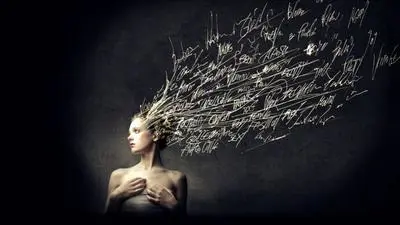Dark Matter of the Mind
Daniel Everett
About the Course
Most linguists and anthropologists look to other cultures to try and discover something fundamentally ‘human’, and many think there is something fundamental in our genes, our language, or our myths that we all share.
In this course, revolutionary linguist Daniel Everett shares his lifetime’s experience with the remote Pirahã people of the Amazon, and makes the case that there is nothing essential to ‘human nature’- but rather that our genetics express themselves differently through different cultures.
By the end of this course, you will have learnt:
- Why the ‘dark matter of the mind’ shapes our ideas and attitudes.
- How epigenetics undermines the idea of genetic determinism.
- The flaws in the thinking behind universal archetypes, language, and myths.
- Why neural flexibility is the key to our species’ success.
- The evolutionary importance of our relationships with animals
- How language functions as a cultural tool.
- What it means to have a sense of self.
- How we should imagine the mind as part of the body.
As part of the course, there are in-video quiz questions to consolidate your learning, suggested further readings to stimulate a deeper exploration of the topic, discussion boards to have your say, and an end-of-course assessment set by Daniel Everett.
IAI Academy courses are designed to be challenging but accessible to the interested student. No specialist knowledge is required.
About the Instructor
-
Daniel Everett
Daniel Everett is an author and academic best known for his study of the Amazon’s Pirahã people and their language. Professor Everett is one of the world’s leading and most original linguists, having spent much of his life living with the Pirahã, arguing that their language disproves the argument for a ‘Universal Grammar’, instead suggesting that language is a cultural tool.
Everett is Dean of Arts and Sciences at Bentley University, and is the author of Language: The Cultural Tool, and Don’t Sleep, There Are Snakes: Life and Language in the Amazonian Jungle.
Course Syllabus
-
Part One: Mind and MatterWhat makes our minds unique? How do structures of knowledge and culture build on the brain?
-
Part Two: The Self and Non-SelfWhy do we experience a sense of self? Everett considers memory, culture, language and the body.
Suggested Further Readings
- Everett, D. L., Language: The Cultural Tool, (Cambridge, MA: Harvard University Press, 2012).
- Everett, D. L., Don’t Sleep, There Are Snakes: Life and Language in the Amazonian Jungle, (New York: Pantheon, 2008).
- Pinker, S., The Language Instinct: How the Mind Creates Language, (New York: William Morrow, 1994).
- Tomasello, M., Origins of Human Communication, (Cambridge, MA: MIT Press, 2008).
- Deacon, T., The Symbolic Species: The Co-evolution of Language and the Brain, (New York: W.W. Norton, 1997).
- Sapir, E., Language: An Introduction to the Study of Speech, (New York: Harcourt, Brace & Company, 1921).
- Boas, F., Primitive Art, (New York: Dover, 1927).
- Gleitman, L., Newport, E., The Invention of Language: A Synthetic Approach, (Cambridge, MA: MIT Press, 1995).


